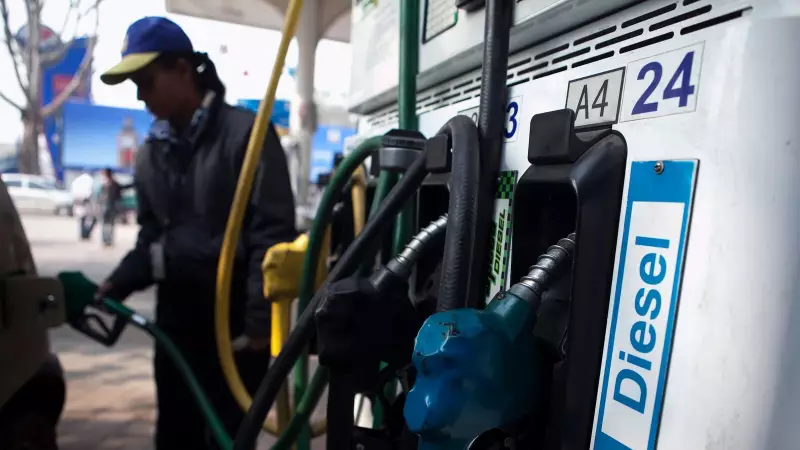
India is steering toward a greener automotive future with its ambitious Corporate Average Fuel Efficiency (CAFE) norms, creating what industry experts are calling a transformative moment for the country's auto sector. The stringent regulations are compelling car manufacturers to rapidly shift their focus from traditional diesel engines to electric and hybrid alternatives.
The CAFE Rules: India's Answer to Global Emission Standards
The latest phase of CAFE regulations mandates that carmakers must achieve a corporate average fuel efficiency of:
- 4.77 L/100km for petrol vehicles
- 4.44 L/100km for diesel vehicles
These standards represent a significant tightening from previous norms and place India among countries with some of the world's most progressive fuel efficiency targets.
Why Diesel Cars Are Losing Their Shine
The new regulations have particularly harsh implications for diesel vehicles. Achieving compliance with pure diesel technology has become increasingly challenging and expensive for manufacturers. This marks a dramatic shift from just a decade ago when diesel was celebrated as the fuel of the future in India.
"The economics no longer favor diesel," explains an industry analyst. "Between the stricter norms and the additional costs of emission control systems, diesel is becoming a less viable option for passenger vehicles."
The Electric and Hybrid Solution
Carmakers are responding to these challenges with a clear strategy:
- Accelerated EV launches across multiple price segments
- Strong hybrid technology as a bridge solution
- Mild hybrid systems for immediate compliance
- Platform sharing to reduce development costs
Several major manufacturers have already announced plans to introduce multiple electric models in the Indian market over the next two years, while simultaneously enhancing their hybrid offerings.
Consumer Impact: What This Means for Indian Car Buyers
The policy shift translates to several key changes for consumers:
- More electric and hybrid options across various price points
- Higher initial costs for advanced technology vehicles
- Long-term fuel savings through improved efficiency
- Better resale value for compliant vehicles
While the transition may involve some short-term adjustments, the long-term benefits include reduced pollution levels and lower operating costs for vehicle owners.
The Road Ahead: India's Green Mobility Vision
India's aggressive push toward stricter fuel efficiency standards positions the country as a global leader in sustainable mobility. The CAFE norms, combined with other initiatives like the FAME scheme, create a comprehensive framework for transforming the automotive landscape.
This policy-driven transformation represents one of the most significant shifts in India's automotive history, potentially setting the stage for the country to become a manufacturing hub for green vehicles in the global market.





